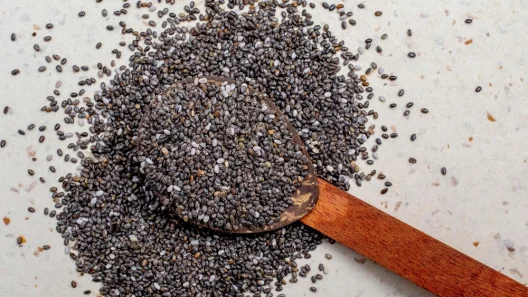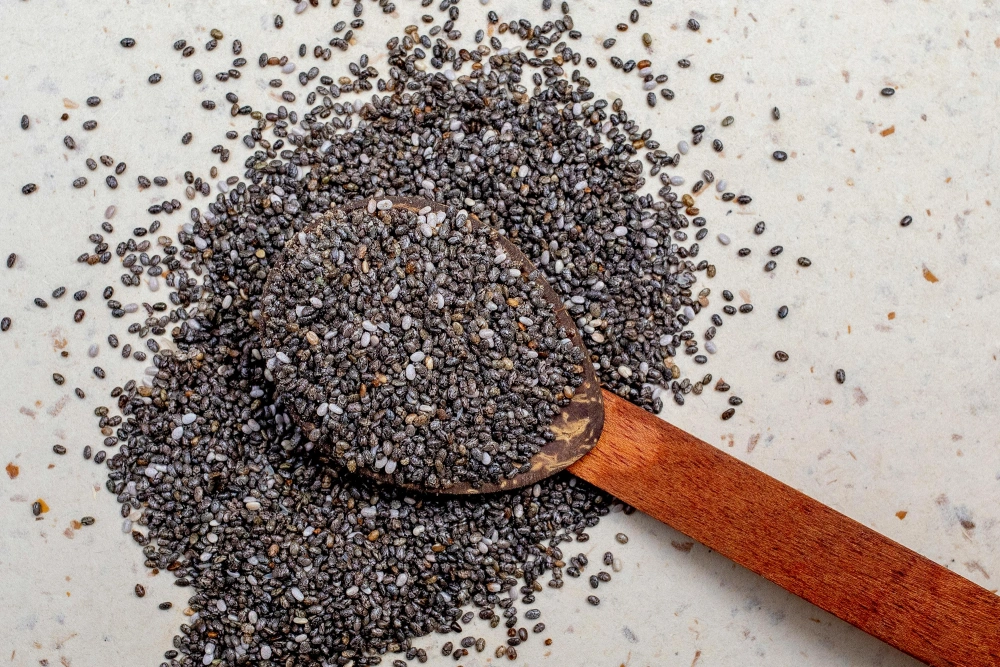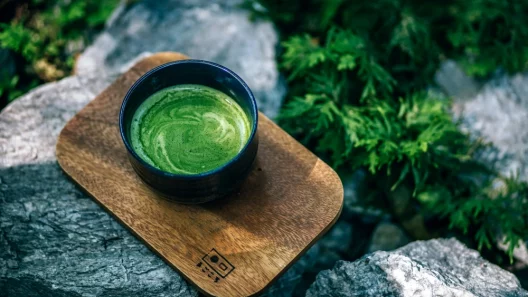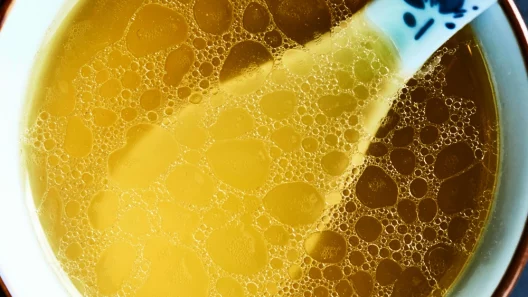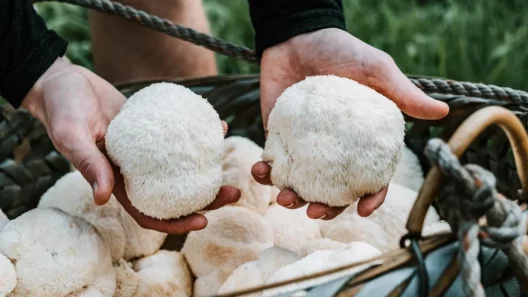In the world of superfoods, few are as unassuming yet powerful as the chia seed. These tiny, speckled seeds, once a staple of ancient Aztec and Mayan warriors, have surged in popularity on the shelves of modern health food stores. But what earns them the title of “superfood”? The answer lies in a staggering nutritional profile packed into a minuscule package.
Packed with fiber, plant-based protein, omega-3 fatty acids, and essential minerals, chia seeds offer a simple way to elevate your health. This article will explore the science behind chia seeds, from their ancient origins to their proven health benefits, and provide practical tips for incorporating them into your daily diet.
What Are Chia Seeds?
Chia seeds are tiny black or white seeds derived from the Salvia hispanica L. plant, a member of the mint family native to Central and Southern Mexico and Guatemala. Their history as a nutritional powerhouse dates back over 5,000 years, where they were a staple food for the Aztec and Mayan civilizations. In fact, historical records indicate that chia was the third-most important crop in Aztec culture, behind only corn and beans, and was even used as a form of tribute. Ancient warriors and runners relied on chia seeds for sustained energy and endurance, with the Mayan word “chiabaan” literally meaning “strengthening”.
Despite their ancient pedigree, chia seeds disappeared for centuries after the Spanish conquest, only to be rediscovered and popularized in the late 20th century. Today, they are celebrated for their impressive nutritional composition. In a nutshell, chia seeds are an excellent source of:
- Dietary Fiber: Promoting digestive health and satiety.
- Omega-3 Fatty Acids: Particularly the plant-based alpha-linolenic acid (ALA), crucial for heart and brain health.
- Complete Protein: Containing all nine essential amino acids, a rarity for plant-based sources.
- Minerals: Including calcium, magnesium, phosphorus, and manganese, vital for bone and muscle function.
The Nutritional Powerhouse of Chia Seeds
So, what exactly makes these tiny seeds so nutritionally dense? Let’s break down the key components that contribute to their superfood status.
Rich Source of Omega-3 Fatty Acids
Chia seeds are a powerhouse of omega-3 fatty acids, predominantly in the form of alpha-linolenic acid (ALA). In fact, they are one of the richest known plant sources of this essential fat, with about 60% of their oil content being ALA.
Omega-3 fatty acids play a critical role in reducing inflammation throughout the body, supporting cognitive function, and promoting heart health. ALA, in particular, has been linked to a decreased risk of heart disease. Because the human body cannot produce ALA on its own, it must be obtained through food, making chia seeds an invaluable addition to the diet, especially for those following a plant-based lifestyle.
High in Fiber for Digestion & Satiety
Incorporating chia seeds into your diet is one of the easiest ways to boost your fiber intake. Just a one-ounce (28-gram) serving provides a whopping 9.8 grams of dietary fiber, which is about 35% of the recommended daily value.
The fiber in chia seeds is both soluble and insoluble. When mixed with liquid, the soluble fiber forms a gel-like substance. This gel slows down digestion, which helps stabilize blood sugar levels and increases feelings of fullness, aiding in weight management. The insoluble fiber adds bulk to stool and supports regular bowel movements, promoting a healthy digestive tract. Adequate fiber intake is consistently associated with a lower risk of coronary heart disease, type 2 diabetes, and certain cancers.
Plant-Based Protein for Muscle & Energy
With a protein content ranging from 15% to 25%, chia seeds are an excellent source of plant-based protein. Importantly, they contain all nine essential amino acids, making them a complete protein source. This is particularly beneficial for vegans and vegetarians looking to diversify their protein intake.
The protein in chia seeds helps stabilize blood sugar levels, providing a steady source of energy and helping to reduce appetite and short-term food intake. Furthermore, as a high-protein food, chia seeds can support muscle repair and growth, making them a great post-workout addition to smoothies or snacks.
Packed with Antioxidants, Calcium & Magnesium
Chia seeds are loaded with a variety of antioxidants, including chlorogenic acid, caffeic acid, myricetin, and quercetin. These compounds protect the body from damage caused by free radicals, which can lead to cell damage and chronic diseases like cancer and heart disease. Antioxidants also protect the delicate fats in the seeds from going rancid, preserving their freshness.
When it comes to bone health, chia seeds are a surprising champion. They contain high levels of calcium, magnesium, and phosphorus. In fact, an ounce of chia seeds provides 14% of the Daily Value for calcium, 23% for magnesium, and 20% for phosphorus, all of which are essential for maintaining strong bones and preventing osteoporosis.
*Table: Nutritional Profile of Chia Seeds (Per 1-Ounce / 28-Gram Serving)*
| Nutrient | Amount | % Daily Value (DV) or Key Benefit |
| Calories | 138 kcal | – |
| Fiber | 9.8 g | 35% of DV |
| Protein | 4.7 g | Complete protein with all essential amino acids |
| Fat | 8.7 g | – |
| Omega-3 (ALA) | 5 g | Excellent plant-based source |
| Calcium | 14% DV | Supports bone health |
| Magnesium | 23% DV | Crucial for muscle & nerve function |
| Phosphorus | 20% DV | Important for bone strength |
| Manganese | 30% DV | Supports metabolism & bone development |
Proven Health Benefits of Chia Seeds
The dense nutritional profile of chia seeds translates into a wide array of tangible health benefits, many of which are supported by scientific research.
Supports Heart Health
The combination of fiber, omega-3s (ALA), and antioxidants in chia seeds makes them a heart-healthy choice. Soluble fiber helps lower LDL (“bad”) cholesterol and triglyceride levels while supporting protective HDL cholesterol. The ALA in chia seeds has also been linked to a reduced risk of heart disease. Some human studies have shown that chia seed supplementation can significantly reduce blood pressure in individuals with hypertension, a major risk factor for heart disease. By improving these key risk factors, chia seeds can play a valuable role in supporting cardiovascular health.
Helps with Weight Management
If you’re looking to manage your weight, chia seeds can be a powerful ally. The high content of both fiber and protein promotes a feeling of satiety or fullness. When consumed, the gel-forming soluble fiber slows down the digestion and absorption of food, which helps decrease appetite and reduce overall calorie intake. One study found that adding chia seeds to yogurt increased feelings of fullness and reduced short-term food intake compared to yogurt alone. While results on weight loss are mixed and chia seeds are not a magic bullet, they are a useful tool within a balanced, nutritious diet for weight management.
Boosts Digestive Health
The exceptional fiber content of chia seeds is a boon for the digestive system. The insoluble fiber adds bulk to stool, helping it pass more quickly through the intestines and alleviating constipation. The gel-like substance formed by soluble fiber acts as a prebiotic, feeding the beneficial bacteria in your gut. A healthy gut microbiome is linked to improved digestion, better immune function, and even enhanced mood. The fiber in chia seeds also helps to prevent diverticulosis and may protect against colorectal cancer.
Enhances Bone & Muscle Strength
Chia seeds are rich in several nutrients crucial for skeletal health, including calcium, phosphorus, magnesium, and protein. Observational studies suggest that getting enough of these nutrients is vital for maintaining good bone mineral density, an indicator of bone strength. The ALA in chia seeds may also play a role in bone health. One animal study found that rats given chia seeds daily for over a year had increased bone mineral content. Combined with their complete protein profile, which supports muscle maintenance and repair, chia seeds are an excellent food for overall musculoskeletal health.
Improves Energy & Endurance
The historical use of chia seeds by ancient athletes appears to have a solid scientific basis. The combination of complex carbohydrates, protein, and healthy fats provides a slow-release source of energy. Unlike the quick spike and crash from sugary snacks, the nutrients in chia seeds are released steadily into the bloodstream. This provides sustained energy, making them a popular choice among modern athletes for endurance sports. They can be added to pre-workout meals or snacks to fuel exercise and post-workout recovery to aid muscle repair.
Chia Seeds for Specific Wellness Goals
Depending on your health priorities, chia seeds can be particularly beneficial. Here’s how they align with common wellness goals.
- Weight Loss and Appetite Control: For those focused on weight loss, chia seeds’ ability to promote satiety is key. The expansion of the seeds in your stomach helps you feel full for longer, naturally reducing the urge to snack between meals. Incorporating them into breakfast, like in a pudding or oatmeal, can help control appetite throughout the day.
- Gut Health and Digestion: If digestive wellness is your goal, the prebiotic fiber in chia seeds is the star. The mucilage gel supports the growth of good gut bacteria, which is fundamental to a healthy microbiome. For individuals struggling with irregularity, the bulking effect of the fiber can help restore regularity.
- Plant-Based Diets and Vegan Nutrition: Chia seeds are a fantastic multi-purpose ingredient for vegans and vegetarians. They provide a rare plant-based complete protein and are one of the best sources of ALA omega-3s available. Furthermore, their high calcium content offers a dairy-free alternative for supporting bone health. They also serve as a brilliant egg substitute in baking for allergen-free cooking.
How to Use Chia Seeds in Your Diet
One of the best things about chia seeds is their incredible versatility. They have a very mild, nutty flavor, so they can be added to a wide variety of foods without altering the taste significantly.
Basic Preparation Methods
- Chia Pudding: This is a classic and easy way to enjoy chia seeds. Simply mix 2 tablespoons of chia seeds with 1/2 cup of milk (dairy, almond, soy, etc.), shake or stir well, and refrigerate for at least 4 hours or overnight. The seeds will expand and form a pudding-like consistency. Top with berries, nuts, or a touch of sweetener for a delicious breakfast or snack.
- Smoothies: Add a tablespoon of whole or ground chia seeds to your favorite smoothie for a extra nutrient boost and thicker texture.
- Baking: Chia seeds can be added to muffin, pancake, or bread batter. They can also be used as an egg substitute for vegan baking. To replace one egg, mix 1 tablespoon of chia seeds with 3 tablespoons of water and let it sit for 5 minutes until it forms a gel.
- Sprinkling: The simplest method is to sprinkle whole chia seeds on top of yogurt, cereal, salads, or rice dishes.
Soaking vs. Eating Raw
You can safely eat chia seeds both raw and soaked. However, soaking is generally recommended for two main reasons. First, it prevents the seeds from absorbing water in your throat, which is a rare but potential risk when consuming dry seeds alone. Second, the gel form may make the nutrients easier for your body to absorb. For most uses in baking, sprinkling, or smoothies, eating them raw is perfectly fine. If you consume them dry, be sure to drink plenty of water afterward.
Potential Side Effects and Safety Tips
Chia seeds are safe for most people and are well-tolerated. The European Union considers them a novel food and suggests a daily intake of up to 15 grams (about 1.5 tablespoons) of seeds. However, there are a few considerations to keep in mind.
- Start Slowly: If you are not used to a high-fiber diet, introducing a large amount of chia seeds at once can cause digestive issues like bloating or gas. Start with a small serving (e.g., one teaspoon) and gradually increase your intake to allow your digestive system to adjust.
- Stay Hydrated: Because chia seeds absorb so much water, it’s crucial to drink plenty of fluids throughout the day when consuming them, especially if eaten dry. This helps ensure proper digestion and prevents any blockages.
- Allergies: Allergies to chia seeds are rare but possible. If you have known allergies to other seeds or mint family plants, exercise caution when trying chia for the first time.
- Drug Interactions: To date, there is no evidence that chia seeds adversely interact with prescription medications. As with any significant dietary change, if you have a chronic health condition, it’s always wise to consult with your healthcare provider.
Chia Seeds vs. Other Super Seeds
How do chia seeds stack up against other popular seeds like flax, hemp, or quinoa? Here’s a quick comparison.
Table: Chia Seeds vs. Other Popular Seeds
| Seed | Key Strengths | Unique Feature of Chia Seeds |
| Chia Seeds | High in fiber, ALA omega-3s, calcium, and antioxidants. Forms a gel. | Superior gel-forming ability for puddings and egg substitutes. Higher calcium content than most other seeds. |
| Flaxseeds | Very high in ALA omega-3s and lignans (a type of antioxidant). | Flaxseeds must be ground to access nutrients, while chia seeds can be eaten whole. |
| Hemp Seeds | High in complete protein and contains GLA, a different type of omega-6 fatty acid. | Hemp seeds have a softer, nuttier flavor and do not form a gel. |
| Quinoa | A complete protein and a good source of carbohydrates. Technically a pseudocereal. | Chia seeds are gluten-free like quinoa, but are much higher in fiber and fat. |
Chia seeds hold their own with their unique combination of high fiber, omega-3s, and minerals, plus their unmatched versatility in the kitchen due to their gel-forming property.
Conclusion
From fueling ancient warriors to gracing modern health food aisles, chia seeds have earned their status as a nutritional powerhouse. Their impressive profile – rich in fiber, plant-based omega-3s, complete protein, and essential minerals, translates into real health benefits, from supporting your heart and digestion to strengthening your bones and aiding weight management.
The simplest way to start is by trying one of the easy recipes mentioned, like a basic chia pudding or by sprinkling a teaspoon into your morning smoothie. Explore more superfoods and their benefits in our Superfoods Ultimate Guide, such as Matcha Benefits: Energy, Focus & Antioxidants or Fermented Superfoods for Gut Health.
References and Scientific Citations:
- Restivo, J. Chia seed benefits: What you need to know. Harvard Health Publishing.
- Kulczyński, B., et al. (2019). Chia Seeds (Salvia Hispanica L.): An Overview… Molecules.
- Rahim, M., et al. (2022). Chia seeds (Salvia hispanica L.): A therapeutic weapon in… Food Science & Nutrition.
- Gunnars, K., & Streit, L. (2023). 11 Proven Health Benefits of Chia Seeds. Healthline.
- Ullah, R., et al. (2015). Nutritional and therapeutic perspectives of Chia (Salvia…). Journal of Food Science and Technology.
- Marcinek, K., & Krejpcio, Z. (2017). Chia seeds (Salvia hispanica): health promoting properties… Rocz Panstw Zakl Hig.
- Chia seeds pack nutritional punch. Mayo Clinic Health System.
- Melo, D., et al. (2019). Chia seeds: an ancient grain trending in modern human diets. Food & Function.
- Chia seed. Wikipedia.


